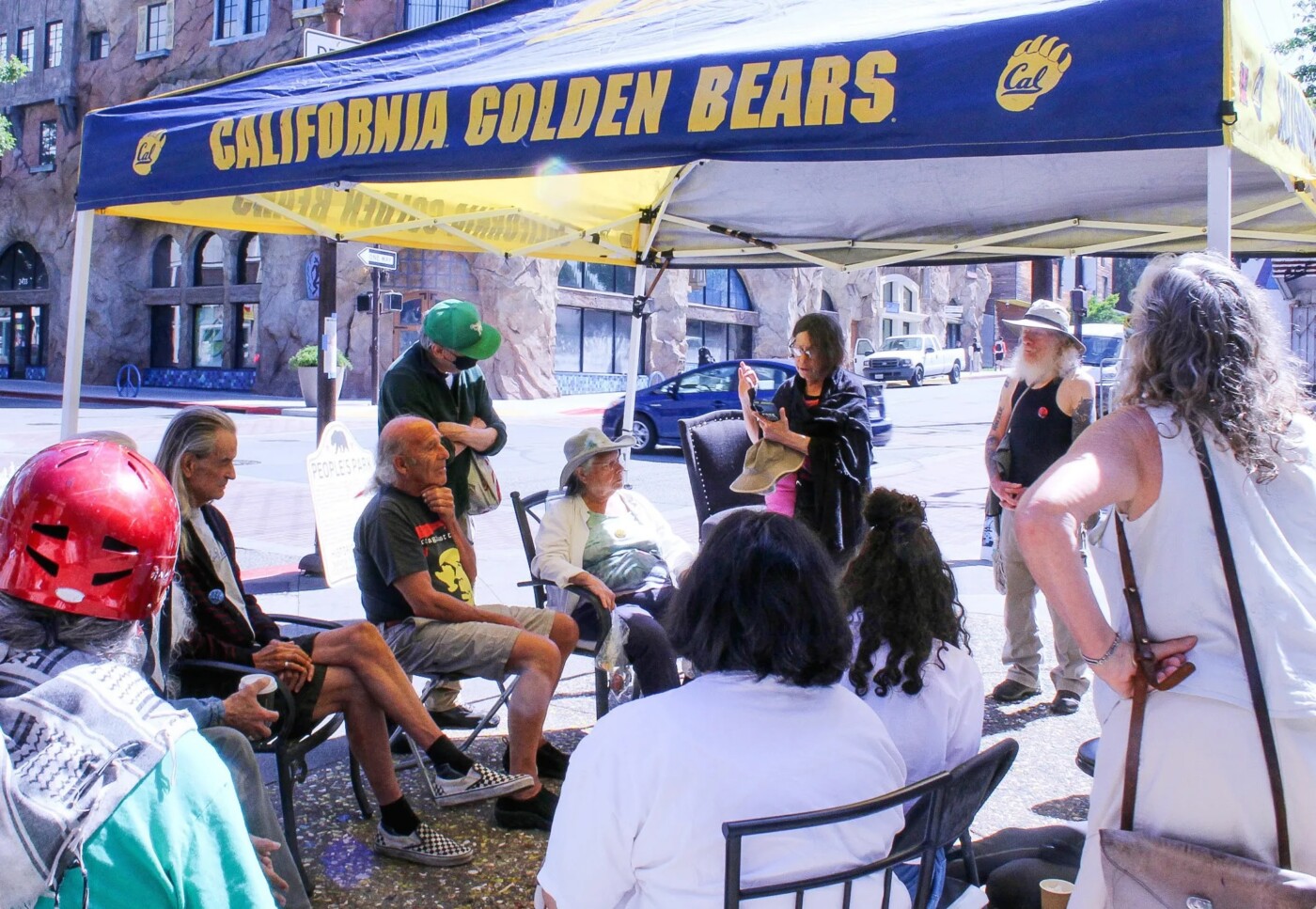“It’s not looking good for the home team,” said Lisa Teague after beginning to read the California Supreme Court’s ruling that will allow UC Berkeley to build housing on People’s Park.
Teague, a Berkeley harm reduction advocate affiliated with the park, read the ruling aloud to more than two dozen people Thursday morning at Berkeley’s chess club, just a block away from the park. Spirits dimmed as the crowd realized the court ruled in the university’s favor. Others wondered aloud if they could work with the city of Berkeley to sue the university from a different angle.
“We can focus our message more on the sense of the right of a city to exist and have its history,” offered Andrea Prichett of Berkeley Copwatch, an organization that monitors police actions in the city.
But mostly, the mood was best summarized by Teague: “Disappointed, but not surprised.”
While support for People’s Park normally draws many UC Berkeley students, summer break meant that the crowd on Thursday morning skewed older. Many, like Jesse Sheehan who runs the chess club, have been involved in the social and legal fight for the park for years.
The California Supreme Court’s ruling will allow UC Berkeley to continue construction of about 1,100 student beds and another 100 units of low-income housing for formerly homeless residents.
“The campus is committed to addressing the high cost and low supply of housing close to campus that undermines students’ ability to thrive, succeed, and fully partake in all that the university has to offer,” said UC Berkeley spokesperson Kyle Gibson in an email.
As the lawsuit — brought by Make UC A Good Neighbor and the People’s Park Historic District Advocacy Group — has snaked through the court system, the university has enacted increasingly expensive measures to secure People’s Park in anticipation of construction. Protesters repeatedly tore down chain-link fences over the years and defaced construction materials on the site.
In January, the university walled off the park with double-stacked shipping containers reinforced with steel and monitored by 24/7 private security. Additional police were stationed around the perimeter wall Thursday ahead of the court ruling, but they didn’t interact with park activists.
The crowd at the chess club dispersed over the course of a few hours, but most people vowed to return Saturday for a “Pride in the Park” event. In the meantime, Teague said the fight isn’t over for the park.
Sheehan added that the People’s Park Historic District Advocacy Group — one of the plaintiffs in the lawsuit — hopes to discuss next steps with UC Berkeley’s tribal liaison and City Councilmember Cecilia Lunaparra, whose district includes the park.
Lunaparra was there at the chess club as the decision was read aloud in order to “be in community with folks who are similarly currently grieving the park.”
A ‘common sense decision’
Other local officials, though, had a very different reaction to the ruling.
Berkeley Mayor Jesse Arreguin took to X, formerly known as Twitter, to praise the “common sense decision” by the court. State Assemblymember Buffy Wicks, D-Oakland, similarly posted on X that she was “thrilled” to see the housing project move forward.
Wicks authored legislation last year to close the gaps in California environmental law that formed the basis of the lawsuit against the project; the court used that bill in its decision to determine that the plaintiffs had no merit to their case.
“We fought really hard, right? This case isn’t over,” Teague said.
The post People’s Park activists ‘disappointed but not surprised’ after court sides with UC Berkeley appeared first on Local News Matters.


 A pro People’s Park sign hangs at Telegraph Ave. and Haste St. in Berkeley, Calif. on June 6, 2024. The California Supreme Court’s ruled the University of California, Berkeley can proceed with a housing development at the park. (Audrey Jacobson/Bay City News)
A pro People’s Park sign hangs at Telegraph Ave. and Haste St. in Berkeley, Calif. on June 6, 2024. The California Supreme Court’s ruled the University of California, Berkeley can proceed with a housing development at the park. (Audrey Jacobson/Bay City News)